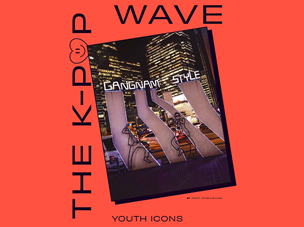Historically considered a last resort, self-production has become an increasingly popular choice for music artists. The model lets them retain ownership of their work and take home a larger share of the revenue—in exchange, they need to learn how to run a company.

Self-production was long something to be endured. Or at least, that's how it was generally perceived. The idea was to independently fund a professional quality record in the hopes of getting noticed and eventually signing with a label... If it worked out, they wouldn’t need to self-produce any more. This state of affairs is something Christophe Mali, singer and guitarist of the French band Tryo, is intimately familiar with, having experienced it himself when starting out as a musician in the mid-1990s. "Every artist was just waiting to be discovered and signed. The only reason they self-produced was because they couldn't find a record label.” The members of the band Tryo were also worried that they would “be eaten up” by a major record label. “Self-production was a way to keep control of our music, to make and distribute it how we wanted to. For a bit of context, at the time we witnessed the success of ‘Mets de l’huile’ by Regg’Lyss, and ‘Mangez-moi ! Mangez-moi !’ by Billy Ze Kick.”
These were bands we knew personally, and their singles were a huge success, but both ultimately turned out to be one-hit-wonders. Our greatest fear was that by signing with a record label, our track ‘L’Hymne de nos campagnes’ would become a radio hit and then just disappear.” Instead, when they self-produced their first album, Mamagubida, which they recorded with basic equipment and even distributed themselves for a time—“Every Wednesday, we’d package CDs in bulk and mail them to the Fnac”—it was a major success, selling 500 000 copies.
SKIP THE RECORD LABEL
The band has since “gone pro” but self-production remains the model on which they built their career. Nowadays, music released in this manner isn't unusual at all, as Christophe Mali explains. Mali mentors young artists and supports initiatives such as Pulse Nation or Le Chantier des Francofolies. “Young artists today are naturally drawn to self-production because they know for a fact that DIY methods can yield professional results. In the 80s and 90s, things were completely different. Making music at home is much easier today, and the same goes for promotion: the relationship between artist and audience is now much more direct.” The landscape changed in the early 2010s, according to Matthieu Couturier, who for many years worked with a record label before founding Grand Musique Management in 2013, a management agency for self-produced artists. “Historically,” he explains, “record labels were established to finance production and provide access to the mass market via retail, television, and radio. In exchange, they took ownership of the artist’s IP.” This changed completely with the emergence of home studios, streaming services and social media. “Many artists who had developed autonomous production methods no longer needed record labels except when it came to distribution,” and in this manner maintained full control of their IP. It was this aspect that convinced Juste Shani, a young artist from the Paris region who first emerged on the rap scene in 2018, to take the leap.
THE ARTIST ENTREPRENEUR
After initially signing with two independent labels because it seemed like “the traditional approach,” she ended up buying back her master records and, with the help of Sacem, launched her own production company in 2023 (see box). And she has no regrets. “That’s when my music really took off.” It makes sense on paper: artists can take home a lot more revenue when they own the rights to their music. But this autonomy comes at a cost: “The investment becomes the responsibility of the artist,” warns Matthieu Couturier. Many artists end up signing distribution deals without the necessary training or resources. Being autonomous means “budget management, investment oversight, promotional campaign management, and the collection and distribution of revenue to relevant rights holders.”
This has created a niche, and a number of organisations offering a range of services to artists, from administrative and legal management to distribution support now exist. Ultimately, self-produced artists must learn to run their own company. “Taking on risks to reap greater rewards is the very definition of entrepreneurship,” says Laurent Bodin, President of iDeal Rights, a business management firm for artists who run their own company. This can be a very difficult aspect of the process for artists: “While self-production is essentially part of the creative process, making art into a business is another matter entirely. It means dealing with staff, making agreements with partners, putting together a business model, etc. This doesn’t mean you have to do everything yourself, but rather that you choose what to take on yourself, what to delegate, and who you want to work with. An artist can't be a lone wolf while trying to run a company.”
Every Monday morning, Christophe Mali and the other members of Tryo meet with press officers, distributors of physical and digital music, marketing managers, and digital branding managers, to go about the work of managing the business. “We've essentially re-created a record label ecosystem, except ours is made up of independent components. And managing this entire ecosystem is hard work. It's incredibly time-consuming. You have to be very organised. Even with our experience, it can be overwhelming at times.”
As a result, he understands that some artists simply do not have the energy or desire to take on the challenges of self-production, and instead prefer to sign artist contracts with established labels. Laurent Bodin of iDeal Rights, who does not consider his company to be a competitor of record labels, is even more explicit on the subject: “Back in the day, self-production was seen as something imposed on artists, but actually record label deals can be just the same. Today, artists have this viable alternative, so when they sign with a label it's because they want to: they might do it for a generous advance, or because the label has amazing producers the band really wants to work with. And I think that’s great. That way, when you choose to self-produce or sign a contract with your dream producer, you're doing it for the right reasons.”
How Sacem Can Help
Sacem provides many services for the benefit of creative professionals, including tailored support for self-produced artists. The goal is simple: Sacem works to support artists in their efforts to self-produce new music in digital or physical format (chanson française, rock, jazz, world music, traditional music, electronic music, soul, funk, urban music, rap, young audiences, etc.). Sacem members with a project to self-produce a 1st, 2nd and/or 3rd finalised recording with a minimum of 5 tracks are eligible to apply for support. To be considered, candidates are required to work with a team of professionals: an editor, a manager, a show producer, a tour manager, a concert venue or support system. In 2024, Sacem received 1152 applications and selected 945 of these for review, with an overall acceptance rate of 22.8 %. 27% of artists accepted in the programme were women. In addition to financial support, representing a standard funding of 5,000 euros, Sacem also provides support in terms of promotional communications initiatives. Rap artist Juste Shani, who benefited from the support programme in 2024 and 2025, called it a “game changer”: “For my first EP release, Sacem’s funding represented about 80% of the budget. It was a huge share. It gave me so much confidence in the project. And it motivated me to deliver something truly professional and polished.”
BY Gérôme Darmendrail
Published August 22 2025


